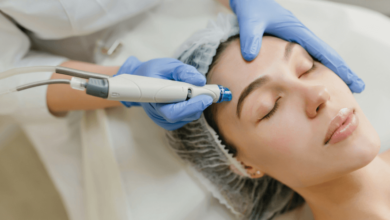A Healthy Guide To Reducing Incontinence Symptoms Naturally

More than one-third of people over 60 around the world have urinary leakage. This common health problem affects more than just the body. It also affects relationships, daily life, and feelings.
When someone has urine incontinence, they can’t control how their bladder works. There are three main kinds:
When you have stress incontinence, you leak urine when you cough or do other physical tasks. If you have urge incontinence, you must go to the bathroom immediately. When the bladder doesn’t empty all the way, overflow leakage happens.
Many people feel ashamed or alone because of these signs. But there’s good news — natural treatments can help control this problem effectively. Let’s study ways to improve bladder control and quality of life.
Manage Your Daily Habits
1. Maintaining a Healthy Weight
Extra weight puts pressure on your bladder and weakens your pelvic muscles. Research shows losing just 5 to 10% of your body weight can help you control your bladder better.
Start with small changes to your eating habits and add gentle exercise to your routine. Walking and swimming work well because they don’t hurt your pelvic area.
For nighttime safety, use waterproof bed pads. They keep wetness away from your skin and help you stay dry and relaxed while you work on improving your health.
2. Food and Drink Choices
When and what you drink matters. Cut back on drinks before bedtime to prevent nighttime bathroom trips. Some foods and drinks can make bladder problems worse:
- Coffee and tea
- Alcoholic drinks
- Spicy food
Write down what you eat and drink each day. This will help you discover which things might be causing problems.
Add more fiber-rich foods to your meals. Foods like whole grains, fresh fruits, and veggies keep your stomach normal and lower bladder pressure.
3. Strengthening Your Pelvic Muscles

Strong pelvic muscles give you better bladder control. Here’s how to do pelvic floor stretches (also called Kegels):
- Find the right muscles by trying to stop your pee flow
- Squeeze these muscles for 5 seconds
- Relax for 5 seconds
- Do this 10 to 15 times
- Repeat three times every day
Make these routines part of your daily practice. Do them while watching TV or brushing your teeth. The key is to do them regularly — this builds the power you need for better bladder control.
Natural Treatment Options
1. Helpful Herbs for Bladder Health
For many years, people have used plants to help with bladder issues. These natural choices can work well, but you must use them carefully and talk to your doctor first.
Three herbs stand out for bladder health:
- Horsetail: This herb contains calcium and vitamins that may improve your bladder system and reduce swelling. Studies show it can help improve bladder control. But don’t use it for too long — it can lower vitamin B1 levels and sometimes hurt your kidneys.
- Yarrow: This plant helps tighten bladder muscles and reduces leaks. You can drink it as tea or take it as drops. Be careful, though — it doesn’t mix well with blood-thinning drugs, and some people may be allergic to it.
- Cranberry: This famous food helps avoid urinary tract infections that can make bladder problems worse. Choose sugar-free cranberry goods since sugar can hurt your bladder.
Remember: These plants aren’t checked by the FDA. Their strength can change, so always talk to your doctor before trying them.
2. Benefits of Acupuncture

Other Considerations
1. Bladder Training
Bladder training helps you control when you need to use the bathroom. This method works well for people who feel quick urges or need to pee often. The process includes simple steps to improve your bladder control over time.
Start with these simple steps:
- Create a bathroom plan. Go to the bathroom at specific times during the day, even if you don’t feel the need.
- Slowly increase the time between bathroom trips. Add 15 to 30 minutes until you can wait 3 to 4 hours.
- When you need to go, try deep breathing or focus on an activity to help you wait.
Most people see better bladder control within 6 to 12 weeks. Writing down your bathroom habits in a notebook helps track your progress.
Read also Preparing for Facelift Surgery: Tips and Advice
2. Incontinence Products
While you work on bladder control, several items can help handle leaks and keep you comfortable:
Absorbent Pads and Underwear
- Come in different sizes for your wants
- Work well for small to more significant leaks
- Stay hidden under clothes
Bed Pads
- Keep your bed dry at night
- Available in clean or throwaway choices
Protective Underwear
- It looks like regular underwear
- Provides strong safety
- Works well during exercise
These items help your treatment plan but shouldn’t replace other ways to improve bladder control.
Importance of Consulting a Healthcare Professional

See a doctor about bladder control issues because they might signal other health problems. A healthcare worker helps by:
- Finding the exact cause of your bladder problems
- Creating a treatment plan that fits your needs
- Checking your success and changing treatment
Contact your doctor if you:
- Have severe or worsening bladder control issues
- Notice pain or blood when urinating
- Feel your daily life is affected by bladder problems
Treatment might include natural means, physical treatment, drugs, or surgery based on your needs.
Conclusion
Don’t let urine incontinence rule your life. You can control your symptoms successfully with natural treatments, lifestyle changes, and help from your doctor. Take the first step today – try these natural options and work with a healthcare source to build your personal treatment plan.





